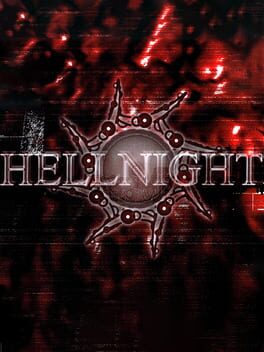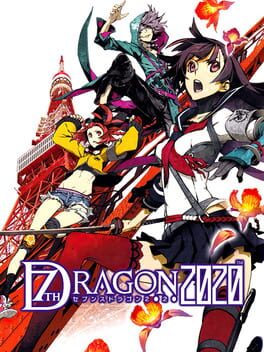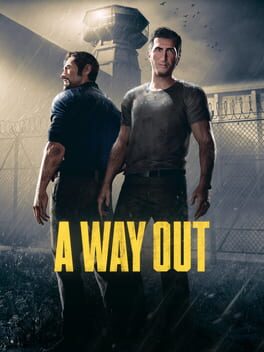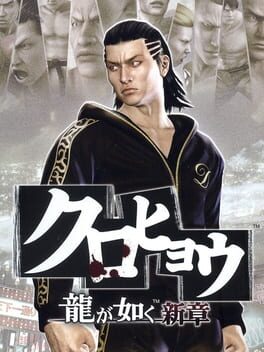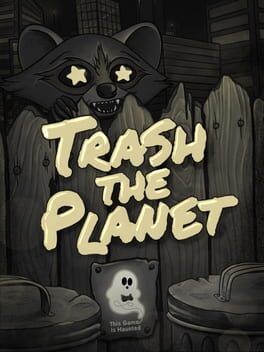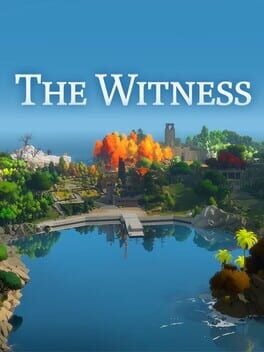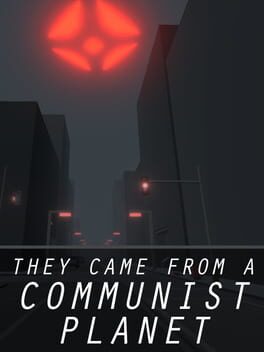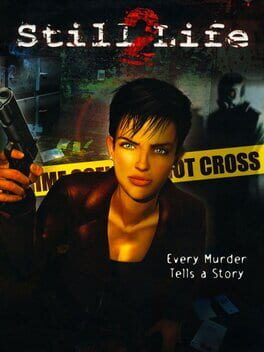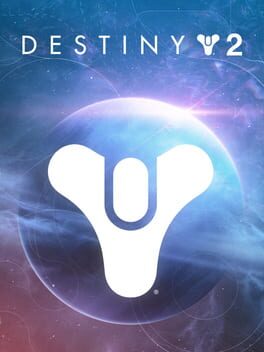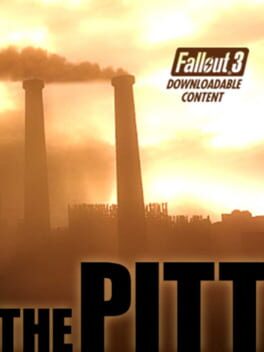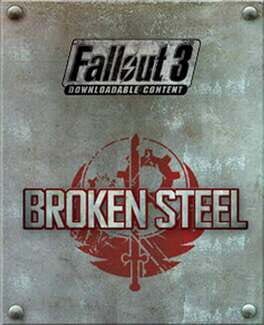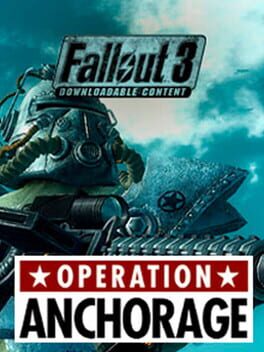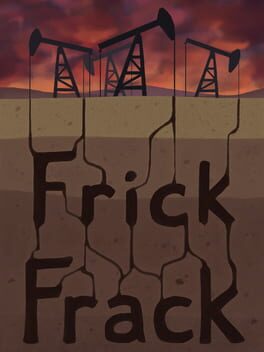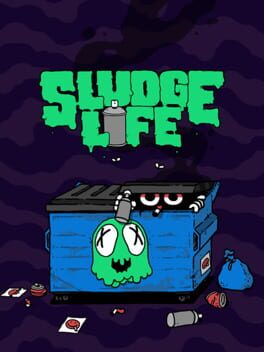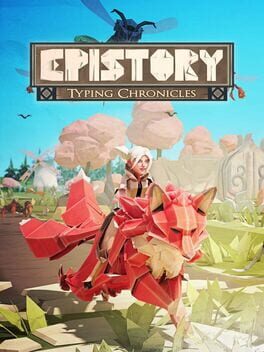AlexaLily
1998
2011
Hey, this game is pretty good! And it has a fully-done fan translation as of about two years ago so it's more accessible than ever.
The combat is pretty simple as it's just your usual turn-based system. The five character classes are all pretty interesting and each have their own mechanic such as the Samurai having two 'stances' that you switch between to change what skills are available or the psychic being your main magic user and having to balance using powerful offensive spells with your heals and recovery spells. The game does offer some challenge in bosses and mini-bosses but it can be pretty easily overcome if you just grind out a handful of levels now and then (which the game makes very easy to do, because of some nice quality-of-life mechanics).
And while we're on the topic of crunchy mechanics, I want to mention the level design in the dungeons because it was pretty consistently very good. It had a lot of interesting moments where what is revealed on your map or what you're able to see with the fixed camera is taken in to account to either try and pull a fast one on your or to tease you about things that you won't get around to until later. It's all very cleverly designed (except for the ice dungeon which just felt cruel and confusing).
And, hey, speaking of design: this game is chock full of good design. I'm pretty ambivalent about the chibi character models but the portraits that go with them are all pretty cool (outside of a few that are a bit too fan-servicey for my tastes). The enemy design were all very cool, although I wish there was a larger variety of things. Seeing the same cool frog get recolored multiple times was a small bummer. The real star here, though, is the environment designs because they really went hogwild with it. Each dungeon has a unique aesthetic that is a part of Tokyo combined with some wild magic nonsense and it's always extremely cool. One of my favorite parts of the game was unlocking a new area so that I could see what it looked like.
The idea that you get to create your characters is neat but I feel like the game needed to either fully commit to more customization or not have it at all. Only getting to pick one of ten portaits, a custom name, plus one of fifteen voices (per gender) doesn't give me much to really play with in terms of making my own characters. Especially when you shove your trio of OCs into the main plot to try and fill the gaping hole where a protagonist would normally go. Since everything has to be written around that hole, it means that your characters basically don't matter. Sure, you're the ones fighting the dragons but anyone with your level of ability could do it and the game is sure to let you know that you're just one group of many that could be doing this (everyone else is either busy or dead, I guess). But also this is one of very few games that let me have a big tiddy milf as a main character so maybe that balances it all out. Who could say.
The main plot itself is pretty milquetoast. Dragons have invaded and it's up to you to unite and defeat them with the power of friendship or whatever. Also you fight god at the end. It's a lot of very common and predictable JRPG tropes shoved together and while it executes on them all pretty well it ends up with something that isn't going to stick in memory for much longer after beating it. The rest of the world, however has some very interesting bits of information that the game has seemingly no interest in actually exploring. Aliens, synthetic humans, secret goverment supersoldiers, plus more, that all get introduced on the fringes of the story but never given much actual detail of. If some of that had even been better incorporated into the plot then it could've been something more engaging but instead it's just a story that is only good enough to keep you going through 'til the end.
One thing I'd me remiss to not mention is that Hatsune Miku is in this game. You save her before she gets eaten by a dragon and then she rewards you with an alternate "Diva Mode" for the soundtrack. The developers got a bunch of vocaloid artists to make Miku remixes of the game's entire soundtrack. At first I thought that was an awesome idea but as I switched back and for between both OSTs I realized that I liked the original one better. Vocaloid music is good but the tracks in this game are just pretty mediocre vocaloid songs. Miku's character model and portrait are very cute though, so that's fun.
Finally, I need to talk about the post-game dungeon. After you roll credits, one of the aliens tells you you need to talk. So after you clean up the last few dragons it unlocks one last dungeon and each bit of progress you make in it rewards you with just a smidge more lore about the dragons and aliens and how they all got here to Earth. At first the dungeon was a neat idea - a mix of all the previous dungeons with only dragon enemies to challenge you with - but after getting halfway through it, it was just too much of a grind for me. The little tidbits of lore weren't worth all the time I was putting in to getting through all these day dragons and doing re-fights with all the bosses of the game. I'm sure I could do it and finish the rest of it off in a few hours but the game has just worn itself out and I wasn't having fun anymore. Whatever happens at the end is extremely unlikely to significantly change how I feel about the game anyway so I don't think I'm missing much there.
Overall, 7th Dragon 2020 is a cool game. It was fun to playthrough and it makes me glad that the fan translation has been completed. It's a little hidden gem of the PSP that I hope more people check out because, despite the issues I have with it, I think it's worth the time to play it.
The combat is pretty simple as it's just your usual turn-based system. The five character classes are all pretty interesting and each have their own mechanic such as the Samurai having two 'stances' that you switch between to change what skills are available or the psychic being your main magic user and having to balance using powerful offensive spells with your heals and recovery spells. The game does offer some challenge in bosses and mini-bosses but it can be pretty easily overcome if you just grind out a handful of levels now and then (which the game makes very easy to do, because of some nice quality-of-life mechanics).
And while we're on the topic of crunchy mechanics, I want to mention the level design in the dungeons because it was pretty consistently very good. It had a lot of interesting moments where what is revealed on your map or what you're able to see with the fixed camera is taken in to account to either try and pull a fast one on your or to tease you about things that you won't get around to until later. It's all very cleverly designed (except for the ice dungeon which just felt cruel and confusing).
And, hey, speaking of design: this game is chock full of good design. I'm pretty ambivalent about the chibi character models but the portraits that go with them are all pretty cool (outside of a few that are a bit too fan-servicey for my tastes). The enemy design were all very cool, although I wish there was a larger variety of things. Seeing the same cool frog get recolored multiple times was a small bummer. The real star here, though, is the environment designs because they really went hogwild with it. Each dungeon has a unique aesthetic that is a part of Tokyo combined with some wild magic nonsense and it's always extremely cool. One of my favorite parts of the game was unlocking a new area so that I could see what it looked like.
The idea that you get to create your characters is neat but I feel like the game needed to either fully commit to more customization or not have it at all. Only getting to pick one of ten portaits, a custom name, plus one of fifteen voices (per gender) doesn't give me much to really play with in terms of making my own characters. Especially when you shove your trio of OCs into the main plot to try and fill the gaping hole where a protagonist would normally go. Since everything has to be written around that hole, it means that your characters basically don't matter. Sure, you're the ones fighting the dragons but anyone with your level of ability could do it and the game is sure to let you know that you're just one group of many that could be doing this (everyone else is either busy or dead, I guess). But also this is one of very few games that let me have a big tiddy milf as a main character so maybe that balances it all out. Who could say.
The main plot itself is pretty milquetoast. Dragons have invaded and it's up to you to unite and defeat them with the power of friendship or whatever. Also you fight god at the end. It's a lot of very common and predictable JRPG tropes shoved together and while it executes on them all pretty well it ends up with something that isn't going to stick in memory for much longer after beating it. The rest of the world, however has some very interesting bits of information that the game has seemingly no interest in actually exploring. Aliens, synthetic humans, secret goverment supersoldiers, plus more, that all get introduced on the fringes of the story but never given much actual detail of. If some of that had even been better incorporated into the plot then it could've been something more engaging but instead it's just a story that is only good enough to keep you going through 'til the end.
One thing I'd me remiss to not mention is that Hatsune Miku is in this game. You save her before she gets eaten by a dragon and then she rewards you with an alternate "Diva Mode" for the soundtrack. The developers got a bunch of vocaloid artists to make Miku remixes of the game's entire soundtrack. At first I thought that was an awesome idea but as I switched back and for between both OSTs I realized that I liked the original one better. Vocaloid music is good but the tracks in this game are just pretty mediocre vocaloid songs. Miku's character model and portrait are very cute though, so that's fun.
Finally, I need to talk about the post-game dungeon. After you roll credits, one of the aliens tells you you need to talk. So after you clean up the last few dragons it unlocks one last dungeon and each bit of progress you make in it rewards you with just a smidge more lore about the dragons and aliens and how they all got here to Earth. At first the dungeon was a neat idea - a mix of all the previous dungeons with only dragon enemies to challenge you with - but after getting halfway through it, it was just too much of a grind for me. The little tidbits of lore weren't worth all the time I was putting in to getting through all these day dragons and doing re-fights with all the bosses of the game. I'm sure I could do it and finish the rest of it off in a few hours but the game has just worn itself out and I wasn't having fun anymore. Whatever happens at the end is extremely unlikely to significantly change how I feel about the game anyway so I don't think I'm missing much there.
Overall, 7th Dragon 2020 is a cool game. It was fun to playthrough and it makes me glad that the fan translation has been completed. It's a little hidden gem of the PSP that I hope more people check out because, despite the issues I have with it, I think it's worth the time to play it.
2018
My favorite moment in A Way Out is when you come across a small playground and, if both players interact with it at the same time, Leo and Vincent will sit down on the swing set together, stare into each others' eyes, and then blame the other for their own odd choice to sit down on a child's plaything. It combines the silly or absurd type of interactions that a video game allows with the game's strong characterization. Both Leo and Vincent are the sort of guy who might randomly sit down on a swing set for a moment but they'd never admit to it.
A Way Out is a game about moments like that. Strange interactions that are full of character depth that is conveyed in only a few seconds. They look at a plant and Vincent thinks it's nice while Leo wonders if it's edible. They see a chicken and Vincent tries to pet it while Leo tosses it in the air to make it "fly". Sure, they're on the run after breaking out of prison but of course they'll take the time to slow down and play darts or horseshoes together. If the entire game had managed to be moments like that interrupted by non-traditional action sequences like taking a boat down some rough rapids then I'd feel much better about this game overall. Unfortunately, the game is interested in playing around with a lot more than what it's actually good at.
The beginning of the game is simultaneously a boring slog with very little freedom to explore or play around and also a rushed series of events to get the characters out of prison. It leans heavily into the player's suspension of disbelief to connect one dot to the next. Don't ask too many questions about how they figured any of this plan out or why any of this works the way it does. Just nod your head and go along with it. Then, at the end of the game, it turns into, at best, and extremely mediocre cover shooter. The things the game is good at are completely stripped away in order to have climactic action to finish off the story.
But that middle part? When you've escaped prison and are working your way towards the climactic end? That's that good shit. Play a banjo. Pet a cow. Help a woman find her cheating husband. Watch the moon landing. Play an arcade game. The game fills an area with life and detail in a way not many other games do and does a great job of having these two knuckleheads poke and prod at the world in ways that are both the player doing video game nonsense but also believable for who these guys are.
But everything that's good has to come to an end. It's truly unfortunate that it comes to end via a bad shooting section followed by two chase sequences and then a second, worse, shooting section. What makes it even worse is how the game ends. One option is a pretty disappointing ending and the other is less disappointing and more satisfying but still not great. I'm not sure there was a really good or interesting way to finish off what this game was doing since it had been an extremely tropey and predictable 70's crime thriller up to this point but I wish it had gone for just about anything else than what it did.
The game desperately wants to be taken seriously but its schlocky pulp action that really should only be taken seriously enough to follow the story and laugh at the silliness of it all. Trying to be more serious than that is to the story's detriment and only leads to disappointment.
I did, however, have more fun with this game than I could ever possibly have watching the Oscars. So fair play to Josef Fares: fuck the Oscars.
A Way Out is a game about moments like that. Strange interactions that are full of character depth that is conveyed in only a few seconds. They look at a plant and Vincent thinks it's nice while Leo wonders if it's edible. They see a chicken and Vincent tries to pet it while Leo tosses it in the air to make it "fly". Sure, they're on the run after breaking out of prison but of course they'll take the time to slow down and play darts or horseshoes together. If the entire game had managed to be moments like that interrupted by non-traditional action sequences like taking a boat down some rough rapids then I'd feel much better about this game overall. Unfortunately, the game is interested in playing around with a lot more than what it's actually good at.
The beginning of the game is simultaneously a boring slog with very little freedom to explore or play around and also a rushed series of events to get the characters out of prison. It leans heavily into the player's suspension of disbelief to connect one dot to the next. Don't ask too many questions about how they figured any of this plan out or why any of this works the way it does. Just nod your head and go along with it. Then, at the end of the game, it turns into, at best, and extremely mediocre cover shooter. The things the game is good at are completely stripped away in order to have climactic action to finish off the story.
But that middle part? When you've escaped prison and are working your way towards the climactic end? That's that good shit. Play a banjo. Pet a cow. Help a woman find her cheating husband. Watch the moon landing. Play an arcade game. The game fills an area with life and detail in a way not many other games do and does a great job of having these two knuckleheads poke and prod at the world in ways that are both the player doing video game nonsense but also believable for who these guys are.
But everything that's good has to come to an end. It's truly unfortunate that it comes to end via a bad shooting section followed by two chase sequences and then a second, worse, shooting section. What makes it even worse is how the game ends. One option is a pretty disappointing ending and the other is less disappointing and more satisfying but still not great. I'm not sure there was a really good or interesting way to finish off what this game was doing since it had been an extremely tropey and predictable 70's crime thriller up to this point but I wish it had gone for just about anything else than what it did.
The game desperately wants to be taken seriously but its schlocky pulp action that really should only be taken seriously enough to follow the story and laugh at the silliness of it all. Trying to be more serious than that is to the story's detriment and only leads to disappointment.
I did, however, have more fun with this game than I could ever possibly have watching the Oscars. So fair play to Josef Fares: fuck the Oscars.
This is partially a review of the game itself but also a bit of a PSA about the fan translation of the game that was released a few months ago.
The game itself is better than I was expecting it to be. The combat is a pretty different system that attempts to make it much more like an actual MMA game with different fighting styles and making each one play a bit different. The story (as far as I got, I quit after about 10 hours due to technical frustrations- more on that later) is largely unremarkable. You play as Tatsuya (who I did not find to be particularly likable) and you fight people until you learn to become a better person while also discovering a secret plot within the Tojo Clan. The vast majority of side content is untranslated which is unfortunate because I think that is where the Yakuza games hold quite a bit of charm and where some of the most interesting world building is done.
Now, about the fan translation. Enough of the game has been translated where you can play through the entirety of the main story but most things outside of that have been left untranslated (and because of how the translation was done, the original Japanese text has been replaced with asterisks, meaning you can't even get a rough machine translation without a Japanese version of the game). That on its own wasn't enough to dissuade me from trying the game out but the translated version also has a lot of technical issues. Several segments of the game crash, opening certain menus can cause crashes, starting certain substories can cause crashes. Most of it can be worked around but it because so tedious and frustrating to deal with that I eventually tapped out and decided to wait/hope for a better and more complete fan translation to appear in the future.
So, overall, I would only recommend playing the game through this fan translation to the most diehard of Yakuza/RGG fans. Are you absolutely desperate to return to Kamurocho one more time and are willing to put up with all kinds of technical issues? Well then this game is there for you.
Maybe the most unfortunate thing is that I highly doubt this game will ever get a re-release or a remake. In interviews, it's never been brought up whereas RGG Studio have talked about wanting to do something for Kenzan and Ishin. So it seems this game and its sequel may be lost to time.
The game itself is better than I was expecting it to be. The combat is a pretty different system that attempts to make it much more like an actual MMA game with different fighting styles and making each one play a bit different. The story (as far as I got, I quit after about 10 hours due to technical frustrations- more on that later) is largely unremarkable. You play as Tatsuya (who I did not find to be particularly likable) and you fight people until you learn to become a better person while also discovering a secret plot within the Tojo Clan. The vast majority of side content is untranslated which is unfortunate because I think that is where the Yakuza games hold quite a bit of charm and where some of the most interesting world building is done.
Now, about the fan translation. Enough of the game has been translated where you can play through the entirety of the main story but most things outside of that have been left untranslated (and because of how the translation was done, the original Japanese text has been replaced with asterisks, meaning you can't even get a rough machine translation without a Japanese version of the game). That on its own wasn't enough to dissuade me from trying the game out but the translated version also has a lot of technical issues. Several segments of the game crash, opening certain menus can cause crashes, starting certain substories can cause crashes. Most of it can be worked around but it because so tedious and frustrating to deal with that I eventually tapped out and decided to wait/hope for a better and more complete fan translation to appear in the future.
So, overall, I would only recommend playing the game through this fan translation to the most diehard of Yakuza/RGG fans. Are you absolutely desperate to return to Kamurocho one more time and are willing to put up with all kinds of technical issues? Well then this game is there for you.
Maybe the most unfortunate thing is that I highly doubt this game will ever get a re-release or a remake. In interviews, it's never been brought up whereas RGG Studio have talked about wanting to do something for Kenzan and Ishin. So it seems this game and its sequel may be lost to time.
2021
2016
On the one hand, the puzzles in this game are really good. There's a lot of very clever design and well-engineered moments that make you go oh. But on the other hand, some sections of the puzzles have accessibility issues that make them incomplete-able (for certain types of colorblindness or anyone hard of hearing). When asked about the accessibility problems, Jonathon Blow said something along the lines of 'you don't need to play the entire game' which is a pretty shitty and casually ableist thing to say. Just add some options, dude, it's fine. It won't ruin your stupid game.
There's also the problem that Jon Blow is kind of shitty. Remember that time he said women aren't as good as men at programming because of some kind of horseshit biological reason? Yeah, the dude sucks. Anyway, ignore all the audio logs and weird philosophy videos in the game and just do the puzzles. Or maybe play other puzzle games, I dunno.
This game does have some of the prettiest video game trees, though.
edit: docking a star for Jon Blow continuing to be a real piece of garbage, seriously fuck that dude and get vaccinated
There's also the problem that Jon Blow is kind of shitty. Remember that time he said women aren't as good as men at programming because of some kind of horseshit biological reason? Yeah, the dude sucks. Anyway, ignore all the audio logs and weird philosophy videos in the game and just do the puzzles. Or maybe play other puzzle games, I dunno.
This game does have some of the prettiest video game trees, though.
edit: docking a star for Jon Blow continuing to be a real piece of garbage, seriously fuck that dude and get vaccinated
2009
Hey, you know how Still Life 1 ended on a whodunnit cliffhanger? Well this game looks at that and says "we don't care, it's solved and the characters know but you don't get to know". Then it goes on to just do whatever the hell it wants with a lot of pretty mediocre writing. The game was also very very broken for me. Several crashes, glitches causing softlocks, clunky controls, and a lack of saves made it way too frustrating to play. I really liked the first game but this was a massive disappointment.
2017
I played at launch and had a fair amount of fun. Shooting feels good, movement feels good, writing is pretty good, all around pretty good. But when I got to what the 'endgame' was at the time, it became a confusing slog. You had to get your special number up but it stopped giving you items that made your special number go up unless you did specific things but it wasn't very good at actually telling you what specific things you needed to do. So I spent something nearly two weeks making next to no progress. Granted, it made for a good podcast game but I still burnt out on that eventually. Then Curse of Osiris came out a few weeks later and when I came back I felt so out of it that I wasn't sure how to get my special number up so I just did the new story stuff and it wasn't very good. Not particularly interesting writing or mechanics but the infinite forest had kind of an interesting look to it.
Then I came back and tried again when the game transitioned from Battlenet to Steam and was thoroughly confused. I had never finished Osiris so I wanted to wrap that up and do the other DLCs but that had all been buried away somewhere because they don't want people to play it? And there was zero explanation about what I should be doing? It just gave me a bunch of quests and told me to use some new mechanics and was an absolute mess. I cannot imagine what that must've been like for anyone coming to the game for the first time. I didn't take long for me to just give up on the game after that. What a weird experience.
Then I came back and tried again when the game transitioned from Battlenet to Steam and was thoroughly confused. I had never finished Osiris so I wanted to wrap that up and do the other DLCs but that had all been buried away somewhere because they don't want people to play it? And there was zero explanation about what I should be doing? It just gave me a bunch of quests and told me to use some new mechanics and was an absolute mess. I cannot imagine what that must've been like for anyone coming to the game for the first time. I didn't take long for me to just give up on the game after that. What a weird experience.
2009
Bethesda continues the age-old tradition of Fallout games invoking slavery but trying to strip it of any politics and just kind of shrug and be like "it's bad, I guess"
Never in the history of the world has slavery been about a group 'just needing someone to do menial labor that no one wants to do'. It is always 'needing someone to do menial labor and also hating a particular group of people and considering them sub-human'. So to discard that second part is to have a fundamental misunderstanding of slavery and whether that's intentional or not is irrelevant because it makes for borderline irresponsible writing.
And the rest of this DLC is okay I guess. It sure is more Fallout 3.
Never in the history of the world has slavery been about a group 'just needing someone to do menial labor that no one wants to do'. It is always 'needing someone to do menial labor and also hating a particular group of people and considering them sub-human'. So to discard that second part is to have a fundamental misunderstanding of slavery and whether that's intentional or not is irrelevant because it makes for borderline irresponsible writing.
And the rest of this DLC is okay I guess. It sure is more Fallout 3.
There is a way to look at Operation Anchorage and read it as a scathing satire of the state of first person shooter campaigns circa 2009. The extreme linearity, the way everyone treats you as the biggest badass, the lack of any meaningful lore or side content. You could look at that and see it being Bethesda saying "look how boring other first person games are. Ours is big and open and and so much Content™!" The problem is that the DLC does absolutely nothing to encourage that reading so instead we're left with an incredibly boring shooter campaign. It really seems like they looked at Call of Duty, looked at their dev tools, and said "yeah we can do that too!"
There is one bit of writing in this that I find particularly interesting: before you go into the simulation there is a terminal that suggests that certain elements of the simulation itself may be exaggerated or incorrect because of the person it was based upon. So you go in thinking that it might get weird (or maybe even wacky) but instead there's nothing that wouldn't reasonable exist in the Fallout universe.
In short, this DLC is a massive missed opportunity and a waste of time.
There is one bit of writing in this that I find particularly interesting: before you go into the simulation there is a terminal that suggests that certain elements of the simulation itself may be exaggerated or incorrect because of the person it was based upon. So you go in thinking that it might get weird (or maybe even wacky) but instead there's nothing that wouldn't reasonable exist in the Fallout universe.
In short, this DLC is a massive missed opportunity and a waste of time.
2021
2020
I really liked what I was able to play of Epistory - it's practically my platonic ideal for what a typing game should be. But I have one problem with it that ends up being a pretty big, game-breaking, issue. This game has an egregious amount of screenshake. Everytime you type a letter, everytime you finish a word, just about everything you do causes screenshake and there's no way to disable it. I don't usually get motion sickness from games but this is one of the few examples that made me dizzy to the point of not being able to play it.
